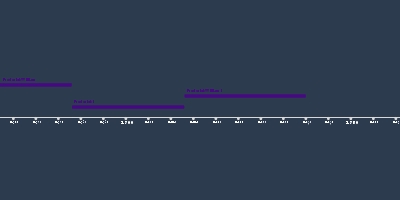r. Napoleon Bonaparte (1 ene 1804 año – 1 ene 1814 año)
Descripción:
Napoleon Bonaparte was the French Emporer who rose to prominence during the French Revolution who was known for his military capability and for building up and expanding France.Napoleon Bonaparte became a lieutenant in the French artillery at a young age. He gained command of French forces in Italy and won victories there in 1796 and 1797. He failed in Egypt but returned before it was widely known, yet their actions there and elsewhere caused Britain to organize a new alliance, the Second Coalition, that included Austria and Prussia.
Napoleon and his conspirators ousted members of the Directory and was installed as leader with approval by a nationwide vote. He established the privately owned Bank of France in 1800 along with leading bankers and appeased to people of all classes. He protected peasants' new gains and offered powerful groups favors in return for loyal service. In the Civil Code of March 1804/the Napoleonic Code, Napoleon bargained with the middle class, reasserting the equality of all male citizens before the law and the security of wealth and private property. He formed a network of ministers, prefects, and centrally appointed mayors and created a new imperial nobility. He restored the Catholic Church with a deal with the pope, the Concordat of 1801. Napoleon’s domestic rule was effective but authoritarian. Women lost many gains they had only just made, and he curtailed free speech and freedom of the press and manipulated voting.
Abroad, Napoleon defeated the Austrians after a failed attempt at peace. The Treaty of Luneville gave up its possessions in Italy and German territory on the west bank of the Rhine, which went to France. The Treaty of Amiens with the British gave France control of the Dutch Republic (now called the Batavian Republic), the Austrian Netherlands, the west bank of the Rhine, and most of the Italian peninsula. He tried to restrict British trade with Europe but failed at the battle of Trafalgar. The Third Coalition was formed between Austria, Russia, Sweden, and Britain due to their fear of the threat to the balance of power. Napoleon obtained a heavy victory at the Battle of Austerlitz, and the coalition collapsed. Napoleon then reorganized and controlled western Germany. This alarmed Prussia, which allied with Russia, but was defeated by France.
Napoleon was practically the emperor of Europe. His Grand Empire was comprised of an ever-expanding France, dependent satellite kingdoms, and independent but allied states of Austria, Prussia, and Russia. Napoleon again tried to halt British trade with his Continental System. In French areas and its satellite states he abolished feudal dues and serfdom. However, he came to be regarded more as a tyrant than an enlightened liberator, and upheaval ensued.
After Napoleon replaced Spanish king Ferdinand VII with his brother Joseph, patriots rebelled and reigned in guerilla warfare, refusing to make Spain a satellite state of France. Britain was still at war with France, and its counter to the Continental System created more problems in France. Napoleon then invaded Russia with 600,000 troops (possibly the largest army assembled by then). Moscow was scorched and abandoned by Russians, and Napoleon eventually ordered a retreat in one of the biggest military disasters in history. The Russian army, Russian winter, and starvation caused 370,000 deaths and 200,000 taken prisoner. Austria offered to reduce France to its historical size, but Napoleon refused. Austria and Prussia joined Russia and Britain in the Treaty of Chaumont and formed the Quadruple Alliance to defeat Napoleon. Following heavy resistance all across Europe, Napoleon abdicated his throne and was left with the small island of Elba off of Italy as his own state. Allies agreed to instill Louis XVIII (Louis XVII had never become king) and to treat France with leniency in a peace settlement. Napoleon returned with a small number of followers and took command after Louis fled. However, the large number of allies who were allied against him defeated him at Waterloo after a period known as the Hundred Days. They imprisoned Napoleon and Louis returned.
Añadido al timeline:
fecha:
1 ene 1804 año
1 ene 1814 año
~ 10 years
